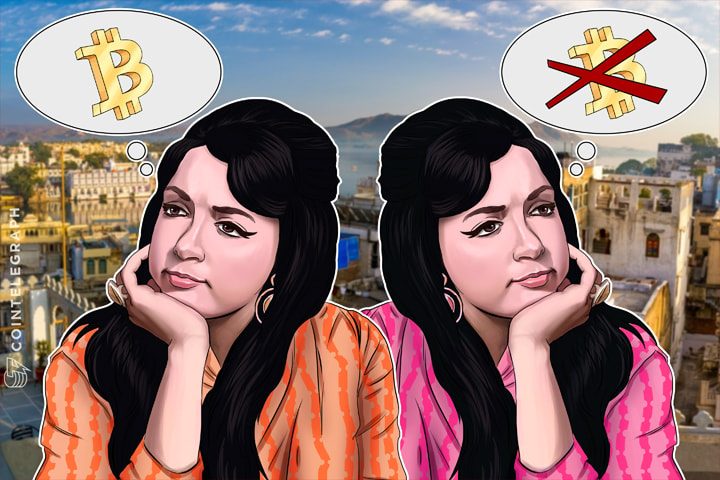Are Bitcoin and trading cryptocurrencies legal in India? The government has not come up with a definite answer but with multiple contradicting statements over the years. When it comes to the regulation of Bitcoin and other cryptocurrencies in India, there are three most relevant authorities where the word can come from— the Government of India, the Supreme Court or the Reserve Bank of India (RBI). Let’s analyze, what their views have been so far, and the direction in which we are headed.
Reserve Bank of India
Reserve Bank of India has so far come with two announcements related to the legal status of Bitcoin. The first one, issued on Dec. 24, 2013, warned people against the ‘potential financial, operational, legal, customer protection and security related risks that they are exposing themselves to.’
On Feb. 1, 2017, the Reserve Bank reiterated its stance, stating that it has not given ‘any license/authorization to any entity/company to operate such schemes or deal with Bitcoin or any virtual currency. As such, any user, holder, investor, trader, etc. dealing with Virtual Currencies will be doing so at their own risk.’
On Sep. 13, 2017, Sudarshan Sen, RBI’s executive director, speaking at an official event said:
"Right now, we have a group of people who are looking at fiat cryptocurrencies. Something that is an alternative to the Indian rupee, so to speak. We are looking at that closely."
However, he further added:
"As regards non-fiat cryptocurrencies, I think we are not comfortable...non-fiat cryptocurrencies like Bitcoins, for example."
On Dec. 6, 2017, RBI reiterated their warning for the third time.
Indian Government and the Supreme Court
After a long grey period, in June 2017, it was reported that the Govt. of India is considering regulating Bitcoin and granting it a legal status, after a govt. appointed committee gave it a positive nod. However, this never materialized.
An interdisciplinary committee formed in April 2017 by the Finance Minister of India, Arun Jaitley, had in its report submitted on Aug. 2nd, 2017, recommended banning all cryptocurrencies.
In November 2017, the Supreme Court ordered the government to respond to a petition filed in the Supreme Court pleading to regulate the flow of Bitcoin and ensure that this virtual currency be made accountable to the exchequer.
A few weeks after this judgment, on Nov. 30 2017, the finance minister of India, Arun Jaitley, speaking at an event reiterated RBI’s stance:
“...As far as the Indian government’s stance is concerned, we have not given any legitimacy to cryptocurrency. Yes, we have received the report, and it is under examination.”
Blockchain—not Bitcoin
Some of India’s largest banks, including ICICI, SBI, and Kotak Mahindra, have been utilizing Blockchain technology. RBI’s executive director had hinted that RBI is looking into creating its own cryptocurrency like the central banks of England or China. Soon after this, news broke out that the Govt. of India has plans to introduce its own cryptocurrency named ‘Lakshmi’ (named after the Hindu goddess of wealth).
Currently Bitcoin faces multiple challenges from existing laws in India, mainly from the RBI Act of 1934, the Foreign Exchange Management Act (FEMA) of 1999, and the Prevention of Money Laundering Act (PMLA) of 2002. Any legalization of Bitcoin or introduction of a new cryptocurrency, even if RBI controlled, will need an amendment in the RBI Act of 1934 and FEMA, at least.
The government has been taking a ‘wait and watch’ policy when it comes to cryptocurrencies— but it will prove to be disastrous, since, as we speak, more and more Users are trading cryptocurrencies in India. As per the President of Blockchain.com, Nicolas Cary, over 2,500 Indian Users trade cryptocurrencies every day.
The overall legal development in relation to Bitcoin and other cryptocurrencies in India, however, is taking a perceivable direction: ditch Bitcoin and adopt the technology behind it.


